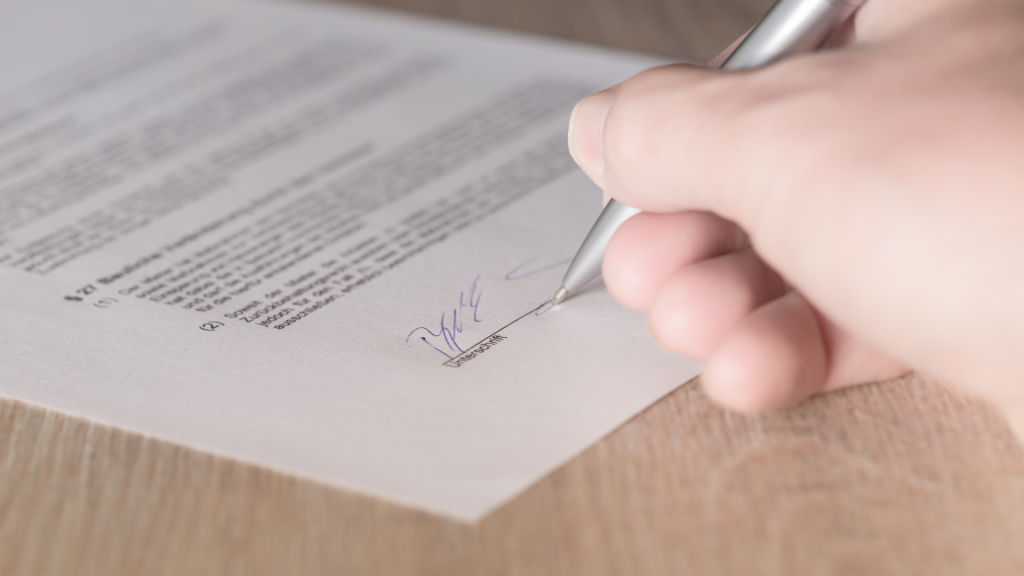
Leases and How We Handle Them as a Business
When involved in the business of leasing assets to another there is specific knowledge required. This is partly because of the various kinds of assets we are looking to lease and the accounting standards that we will need to be familiar with. Thankfully, dedicated software can take care of much of the accounting side. For instance, accounting software for ASC 842 compliance.
It is worth considering here just what leases are about and how we account for them effectively so that no dates or deadlines are ever missed.
Is it Better to Lease or Buy for a Business?
When it comes to acquiring assets for your business, the decision between leasing and buying can significantly impact your financial strategy and operational flexibility. Both options have their merits, and the choice depends on various factors such as your business goals, cash flow situation, tax considerations, and long-term plans.
Leasing offers several advantages. Firstly, it involves lower initial costs, making it appealing for businesses with limited capital or those aiming to preserve cash flow for other investments or expenses. Additionally, leasing provides flexibility, allowing businesses to upgrade equipment or premises more frequently without the hassle of selling or disposing of owned assets. The responsibility for maintenance and repairs often rests with the lessor in lease agreements, relieving businesses of associated costs and logistical concerns. Furthermore, lease payments are typically tax-deductible as operating expenses, offering potential tax advantages for businesses, particularly those in need of immediate deductions. Moreover, with fixed monthly payments, lease agreements aid in budgeting and financial planning, enabling businesses to anticipate expenses more accurately.
On the other hand, buying assets outright has its own set of benefits. Ownership grants businesses long-term value and potential appreciation, especially in the case of real estate or certain equipment. Moreover, purchasing assets allows businesses to build equity over time, which can be leveraged for future investments or serve as collateral for financing.
While buying often involves higher initial costs, over the long term, it can be more cost-effective compared to continuous lease payments, especially for assets with a long lifespan. For example, purchasing Asphalt Equipment can be super useful as a long-term investment for construction businesses, as it not only provides greater control over operations and maintenance but also eliminates the need for recurring lease payments, ultimately leading to significant cost savings and improved profitability over time. Keep in mind that, ownership provides businesses with greater control over how assets are used, maintained, and customized to suit specific operational needs. From a tax perspective, while lease payments are tax-deductible, owning assets can also offer tax advantages, such as depreciation deductions and potential capital gains treatment upon sale.
Ultimately, the decision between leasing and buying should align with your business’s unique circumstances, including financial resources, growth projections, industry dynamics, and risk tolerance. Consulting with financial advisors or industry experts can provide invaluable insights tailored to your specific situation, helping you make an informed decision that optimizes your business’s financial health and operational efficiency.
Definition of a Lease and Some Different Types
A lease is considered a contract that requires the user of the asset to pay its owner during the period of the lease. For example, businesses often prefer to lease office properties or equipment instead of purchasing them outright. This arrangement allows them to utilize the asset without incurring the significant upfront costs associated with buying. Furthermore, by collaborating with expert lawyers, businesses can explore the option of voluntarily surrendering a lease if the need arises.
That being said, there are several other reasons why businesses may choose to enter a leasing contract. For instance, businesses may opt for leasing agreements to stay technologically up-to-date without committing to long-term ownership, ensuring access to the latest equipment or technology. Leasing also provides businesses with the flexibility to adapt to changing market conditions, facilitating easier scalability or downsizing as needed. Moreover, leasing often includes maintenance and service agreements, relieving businesses of the burden of equipment upkeep and repairs.
This is why, commercial or Industrial Machinery and equipment will generally be leased. Keep in mind that the two parties in the agreement are the lessor, who is the owner of the asset, and the lessee, who is hiring it. Both have obligations. It is important to understand the legal technology concerning leases as well as how they now need to be accounted for with greater visibility on the balance sheet.
The many types of leases available will include a financial lease, operating lease, conveyance type lease, leverage or non-leveraged lease, and sale and leaseback. These are just a few of them. It is the financial lease that needs particular attention because, under the new accounting standard ASC 842, it now needs to be shown as capital on the balance sheet. It is important to correctly define assets in leasing so that they are accounted for correctly. Accounting software can guide you in this process and ensure that leases with different due dates are always kept track of.
How a Business Will Handle Leases?
Handling business leases involves navigating complex legal and financial considerations. This is where manchester business solicitors or professionals of comparable caliber from other locations can play a crucial role. These legal professionals are well-versed in lease agreements, including accounting standards such as ASC 842, IFRS 16, and GASB 87, which govern lease accounting practices. By understanding these standards, solicitors can ensure that lease agreements are structured in compliance with regulatory requirements and accurately reflected on the balance sheet.
Moreover, they can provide invaluable expertise in negotiating lease terms that are advantageous to their clients. They can help businesses identify potential risks and liabilities associated with leases and negotiate favorable terms to mitigate these risks. This includes clarifying responsibilities for maintenance, repairs, and asset disposition, ensuring that businesses are not burdened with unexpected costs or liabilities.
Furthermore, solicitors can advise businesses on the advantages of leasing and help them effectively market their lease offerings to customers. They can assist in crafting lease agreements that highlight benefits such as lower monthly payments, reduced upfront costs, and simplified asset management. By understanding the nuances of different lease structures, solicitors can help businesses tailor their lease offerings to meet the needs of their customers while maximizing profitability.
In addition to lease negotiation and structuring, business solicitors can provide ongoing support throughout the lease lifecycle. This includes reviewing and updating lease agreements as needed, resolving disputes or breaches of contract, and providing guidance on lease termination or renewal.
Overall, business solicitors play a critical role in helping businesses navigate the complexities of leasing, ensuring that lease agreements are structured effectively, and protecting their clients’ interests throughout the lease lifecycle.
What Information is Included With a Lease?
Information that will be included in a leasing agreement includes details of the parties concerned as well as their guarantees, details of rent payments and expenses, the lease terms and renewal dates, as well as the business protection clauses. What is written in the contract, in legal terminology, will be to protect both parties. Those leasing the asset will want to know that it is available to them for the period they require it. The owner of the asset, in other words, the lessor, will want to protect the fact that the lessee (hirer) is going to make regular payments to them for the privilege of leasing the asset. Any lapses in payments or periods that an asset is not in use will mean lost revenues for a company leasing assets.
Accounting for Leases
It is good to know that accounting software is available to take care of the financial aspects of leases. It will make the task easier of accounting for the diverse types of leases much easier and faster. Amounts collected must be placed correctly within the accounts and it is important not to miss any due dates. These two things software takes care of, as well as ensuring that the all-important accounting standards are all adhered to. Continued cash flow will result from always being able to effectively keep a track of payments due. Lease accounting software will contribute to improved reputations when customers have the confidence that the other business they are dealing with has the accounting side under control.
How we manage leases as a business will mean the difference between success and failure. Thinking about all the above will help you to focus on what is important.
